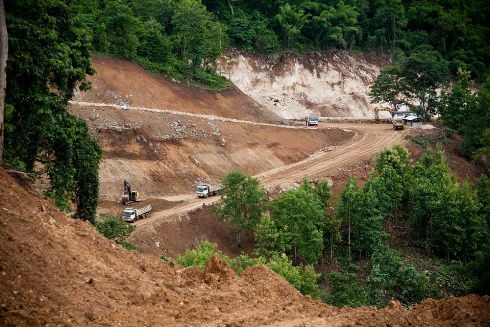
|
Published: 2 May 2012
Could the Mekong’s dams destabilise Asia?
South-East Asian nations surrounding the Lower Mekong Basin should put construction of hydroelectric dams on the Mekong River on hold if they want to avoid a human security disaster, says a University of Sydney PhD candidate.
In a paper published by the Centre for Non-Traditional Security Studies, Chris Baker calls for a holistic approach, assessing dams for their impact on the entire Mekong Basin, rather than looking only at their effect on individual states.
The paper ‘Dams, Power and Security in the Mekong’ says proliferation of dams could destroy the livelihoods of millions, devastate the economies of Cambodia and Vietnam, and force many to migrate.
‘The social ramification of such migration is often resentment in the receiving communities against new arrivals,’ writes Mr Baker. ‘There is documented evidence of this exacerbating ethnic or political tensions leading to violent conflict.
‘The forced relocation of hundreds of thousands in the Mekong Basin, similar to that witnessed with the removal of 1.4 million people during construction of the Three Gorges’ Dam in China, is just the beginning.
‘In the longer term, the havoc wrought on fisheries and the impact on agriculture brought about by these dams is likely to create a food security catastrophe.’
Mr Baker assessed the impact of the Mekong’s current and proposed hydroelectric dams on regional security and says South-East Asian nations need to consider a 10-year moratorium on new dams.
He also says the ‘hydropower gold-rush’ sweeping the Lower Mekong Basin (LMB) – running through Thailand, Laos, Cambodia and Vietnam – is a threat to the region’s peace and stability.
Mr Baker’s fieldwork took him to Central Laos where he witnessed first-hand the impacts of the Nam Thuen 2 dam. His paper also closely examines the controversial Xayaburi dam and the impact of 10 mainstream hydro-projects. He says giving these dams the thumbs up will result in even more hydro-electric dams down the track, putting the Mekong, its resources and its people under vast pressure.
The contentious Xayaburi dam, which has reportedly already begun construction in secret, would block the Mekong with a 49 m high, 830 m long dam wall.
‘Once they start building on the lower mainstream there will be little to stop a “tragedy of the commons”, in which dams turn the Mekong into a reservoir up to 3000 km long,’ says Mr Baker. ‘If that happens millions of people will be affected.’
Source: University of Sydney




